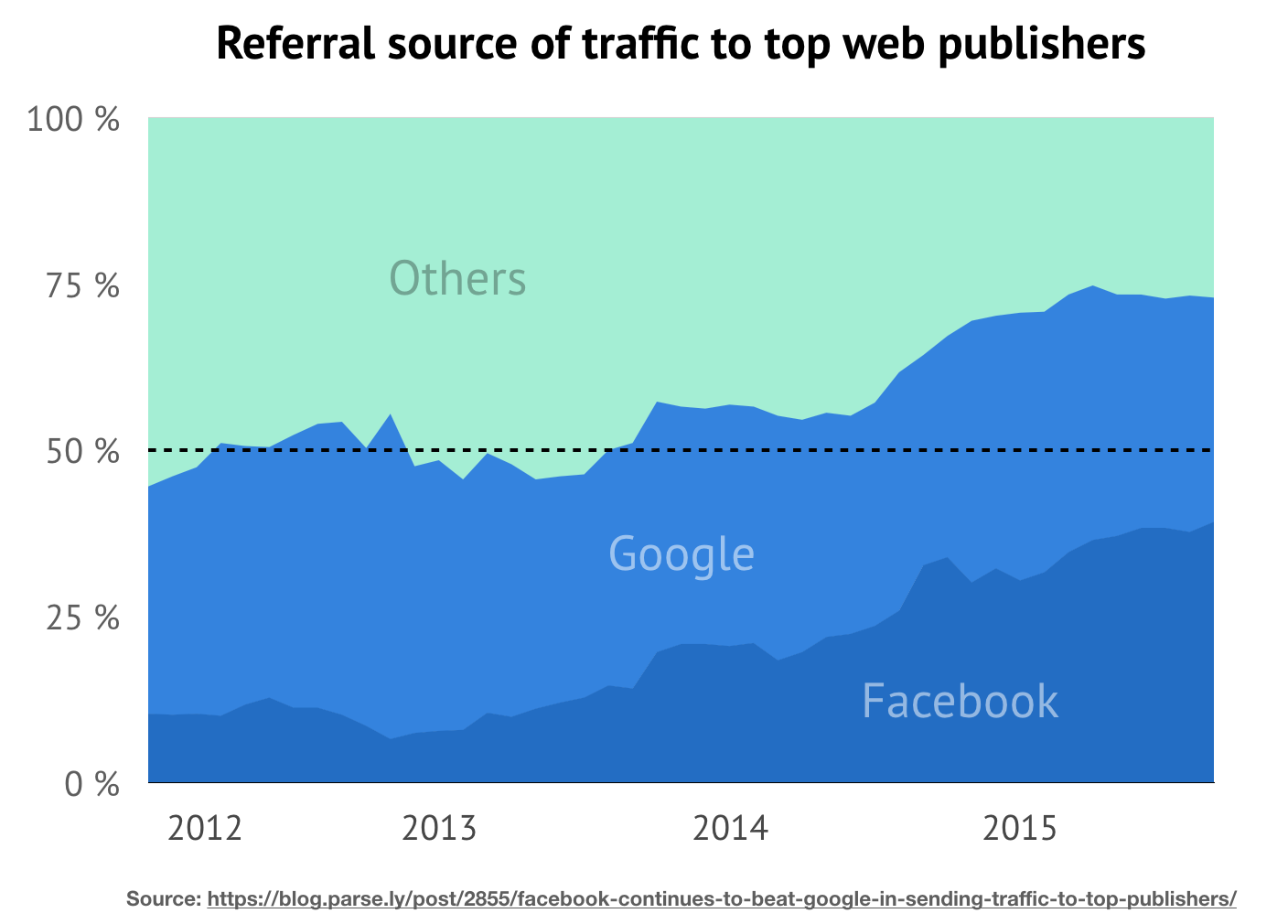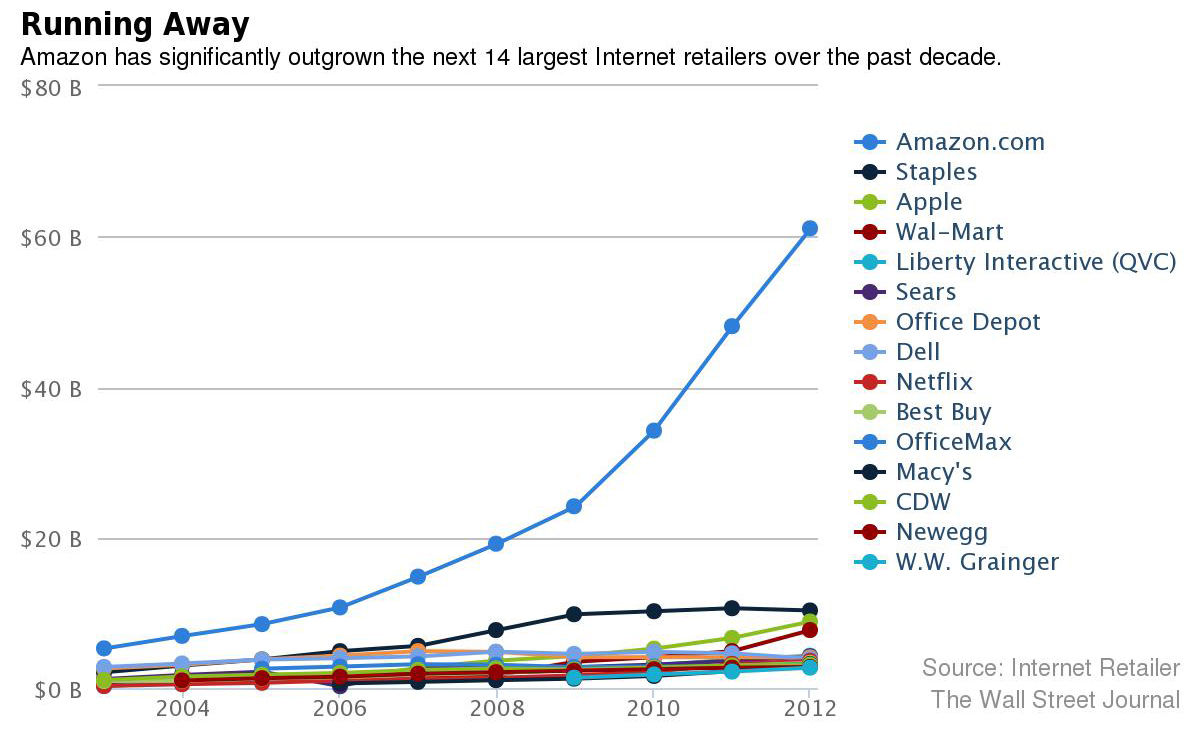Source: André Staltz – The Web began dying in 2014, here’s how
The underlying dynamics of power on the Web have drastically changed since 2014, and Google, Facebook, and Amazon (respectively, GOOG, FB, AMZN) are at the center of a fundamental transformation of the Web.
It looks like nothing changed since 2014, but GOOG and FB now have direct influence over 70%+ of internet traffic.
The original vision for the Web according to its creator, Tim Berners-Lee, was a space with multilateral publishing and consumption of information. It was a peer-to-peer vision with no dependency on a single party. Tim himself claims the Web is dying: the Web he wanted and the Web he got are no longer the same.
Perhaps a future with great user experience in AR, VR, hands-free commerce and knowledge sharing could evoke an optimistic perspective for what these tech giants are building. But 25 years of the Web has gotten us used to foundational freedoms that we take for granted. We forget how useful it has been to remain anonymous and control what we share, or how easy it was to start an internet startup with its own independent servers operating with the same rights GOOG servers have. On the Trinet, if you are permanently banned from GOOG or FB, you would have no alternative. You could even be restricted from creating a new account. As private businesses, GOOG, FB, and AMZN don’t need to guarantee you access to their networks. You do not have a legal right to an account in their servers, and as societies we aren’t demanding for these rights as vehemently as we could, to counter the strategies that tech giants are putting forward.
The Web and the internet have represented freedom: efficient and unsupervised exchange of information between people of all nations. In the Trinet, we will have even more vivid exchange of information between people, but we will sacrifice freedom. Many of us will wake up to the tragedy of this tradeoff only once it is reality.


